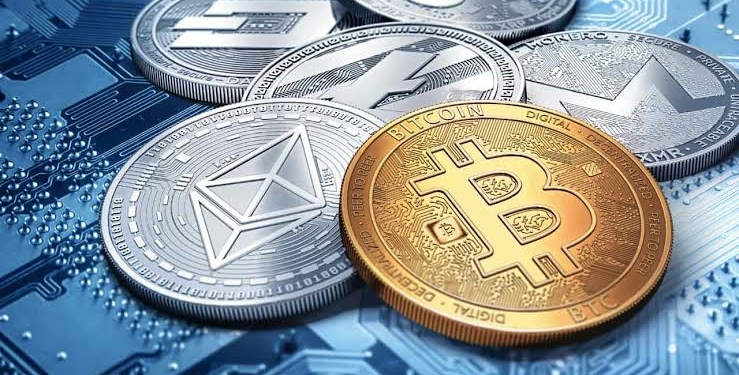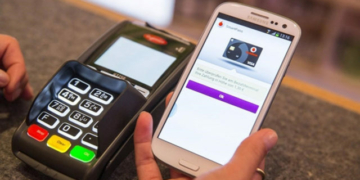Nigeria’s Securities and Exchange Commission (SEC) on Monday announced that it would begin to regulate digital currencies and crypto-based companies.
A statement by SEC said the general objective of regulation is not to hinder technology or stifle innovation but to create standards that encourage ethical practices that ultimately make for a fair and efficient market.
The Nigerian government had in the past described digital currencies as illegal and warned its citizens against it.
The crypto-coin investment environment in Nigeria has, thus, been devoid of extant regulation, despite a surge in peoples’ interest in the digital offerings.
According to the 2020 Global Crypto Adoption Index compiled by blockchain data analytics firm, Chainalysis, Nigeria ranked highly among other countries where cryptocurrency adoption was quite significant.
Nigeria was ranked alongside Ukraine, Russia, China, South Africa, Kenya, and the U.S. – all countries listed among the top-ranking countries by cryptocurrency adoption.
The capital market and investment regulator on Monday said digital assets provide alternative investment opportunities for the investing public and it therefore becomes essential to ensure that they “operate in a manner that is consistent with investor protection, the interest of the public, market integrity and transparency”.
Section 13 of the Investment and Securities Act, 2007 conferred powers on SEC as the apex regulator of the Nigerian capital market to regulate investments and securities business in Nigeria, it said.
In line with these powers, SEC said on Monday that it has adopted a three-pronged objective to regulate innovation, hinged on safety, market deepening and providing solution to problems.
“This will guide its strategy, its regulations and its interaction with innovators seeking legitimacy and relevance,” the statement said.
“Consequently, the SEC will regulate crypto-token or crypto-coin investments when the character of the investments qualifies as securities transactions.”
SEC said that its position remains that virtual crypto assets are securities, unless proven otherwise. Hence, it said, the burden of proving that the crypto assets proposed to be offered are not securities and therefore not under the jurisdiction of the SEC, is placed on the issuer or sponsor of the said assets.
“Issuers or sponsors are expected to satisfy the burden of proving that the virtual assets do not constitute securities by making an initial assessment filing,” SEC said.
“However, where the finding of the Commission is that the virtual assets are indeed securities (not structured to be exclusively offered through crowdfunding portals or other exempt methods), then the issuer or sponsor must register the digital assets.
“The registration process for virtual assets will therefore involve a two-prong approach – an initial assessment filing to satisfy the burden of proof and a filing for registration proper, either made directly by the issuer or sponsor or where the burden of proof is not satisfied.”
Similarly, SEC said all Digital Assets Token Offering (DATOs), Initial Coin Offerings (ICOs), Security Token ICOs and other Blockchain-based offers of digital assets within Nigeria or by Nigerian issuers or sponsors or foreign issuers targeting Nigerian investors, shall be subject to the regulation of the Commission.
Existing digital assets offerings prior to the implementation of the Regulatory Guidelines will have three (3) months to either submit the initial assessment filing or documents for registration proper, as the case may be, it said.
The commission said those to be regulated include “any person, (individual or corporate) whose activities involve any aspect of Blockchain-related and virtual digital asset services, must be registered by the Commission and as such, will be subject to the regulatory guidelines.” Such services include, but are not limited to, reception, transmission and execution of orders on behalf of other persons, dealers on own account, portfolio management, investment advice, custodian or nominee services.
Others are issuers or sponsors (start-ups or existing corporations) of virtual digital assets who shall be guided by the commission’s regulation.
The commission said it may require foreign or non-residential issuers or sponsors to establish a branch office within Nigeria but foreign issuers or sponsors will be recognised by the commission where a reciprocal agreement exists between Nigeria and the country of the foreign issuer or sponsor.
“A recognition status will also be accorded, where the country of the foreign issuer or sponsor is a member of the International Organization of Securities Commissions (IOSCO),” it said.
The commission added that “Crypto Asset” means a digital representation of value that can be digitally traded and functions as “(1) a medium of exchange; and/or (2) a unit of account; and/or (3)a store of value, but does not have legal tender status in any jurisdiction. A Crypto Asset is – neither issued nor guaranteed by any jurisdiction, and fulfils the above functions only by agreement within the community of users of the Crypto Asset; and Distinguished from Fiat Currency and E-money.”




Discussion about this post